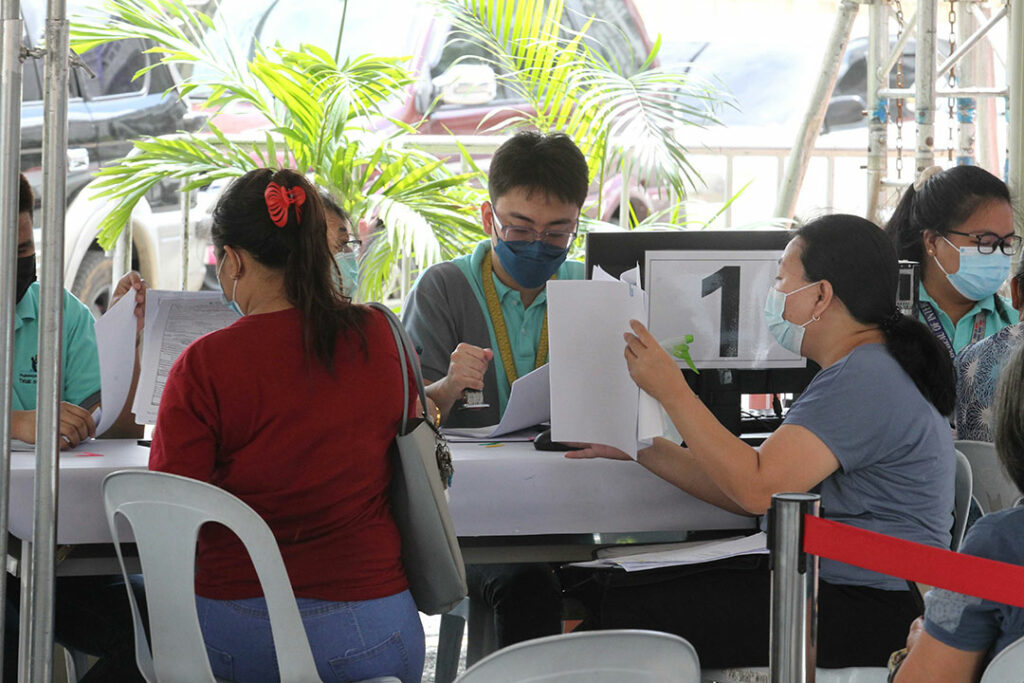




January Economic Update: Growth slows, prices rise
 DOWNLOAD
DOWNLOAD

Inflation Update: Up, up, and away?
 DOWNLOAD
DOWNLOAD

Quarterly Economic Growth Release: Growth takes on a slower pace
 DOWNLOAD
DOWNLOAD


DBCC set to review revenue targets

The government is keeping its revenue targets for now, although a review by the Development Budget Coordination Committee (DBCC) is scheduled next month.
“We’re keeping the targets. [We] will make a review [by the] end of June,” Finance Secretary Ralph G. Recto told reporters in a Viber message on Monday.
This comes as the Department of Finance (DoF) reiterated that it would not push new tax measures to avoid fanning inflation.
Finance Undersecretary and Chief Economist Domini S. Velasquez over the weekend said the DoF would rely on nontax revenue to meet collection targets.
“Nontax revenue is actually a short-term solution… We were expecting that this year. I think the intent is not to impose new taxes,” she said during a forum organized by the Economic Journalists Association of the Philippines and San Miguel Corp. at the weekend.
The DoF has been looking for ways to generate much-needed revenue as Mr. Recto earlier said he does not plan to introduce any new taxes this year.
Ms. Velasquez said the DoF is not planning to push “inflation-inducing” taxes.
“We do recognize that (the targets are) challenging. That’s why we have in place the nontax revenues,” she added.
Nontax revenues refer to collections from government services, including regular fees and service charges, the privatization of state assets and dividends from government-owned and -controlled corporations (GOCC).
Latest data from the DoF showed that nontax revenues stood at PHP 206.4 billion as of April.
The agency has been proposing initiatives to boost nontax revenues. Last week, Mr. Recto suggested selling the government’s stake in the Subic-Clark-Tarlac Expressway (SCTEx) to state pension funds.
The DoF also raised the mandatory dividend remittances of GOCCs to the National Government to 75% of their annual net income in 2023 from 50%.
Ms. Velasquez said the focus on nontax revenues would “buy time” for the department to ensure that its revenue-generating agencies can improve their collections.
The Bureau of Internal Revenue (BIR) is tasked to collect PHP 3.055 trillion, while the Bureau of Customs’ (BoC) revenue target is at nearly PHP 1 trillion.
In the first four months of the year, the government collected PHP 1.4 trillion in revenues or nearly a third of the full-year target, data from the Finance department showed.
The BIR had collected PHP 912.9 billion as of end-April, falling short of its PHP 1.03-trillion goal for the period.
On the other hand, the BoC collected PHP 229.67-billion, exceeding its PHP 288.53-billion target by 3.86%.
Union Bank of the Philippines, Inc. Chief Economist Ruben Carlo O. Asuncion welcomed the DoF’s plan not to introduce new taxes.
“New taxes are unpopular. People wouldn’t want to have new taxes especially that inflation and interest rates are high and impact spending of almost everyone,” he said in a Viber message.
P&A Grant Thornton tax principal Eleanor L. Roque said the government’s ability to generate enough revenues without imposing new taxes would depend on its collection efficiency.
“If there are untaxed sectors or inefficiencies in the collection efforts, the government can concentrate on plugging the loopholes and increased collection,” she said in a Viber message.
“The government should also consider global tax developments such as BEPS (base erosion and profit shifting) to ensure that the taxes that should be paid in the Philippines is not paid to other jurisdictions just because we are late in adopting BEPS,” she added.
To improve tax collection, Ms. Roque said the BIR should ensure that it has enough personnel or infrastructure to help taxpayers and improve tax collection.
Meanwhile, the Finance department is also studying ways to improve tax collection in electronic commerce platforms, citing best practices in other Asian economies.
“There could be missed [revenues] in e-commerce, especially those who moved from brick-and-mortar shops and now sell online,” Ms. Velasquez said in mixed English and Filipino.
In a statement, the department said it is working to adopt best practices in digitalization from South Korea, Singapore and Japan to improve tax collection.
The DoF will also meet with the Securities and Exchange Commission and Bureau of Local Government Finance to “establish a comprehensive data-sharing agreement.” —Beatriz Marie D. Cruz
This article originally appeared on bworldonline.com





 By BusinessWorld
By BusinessWorld